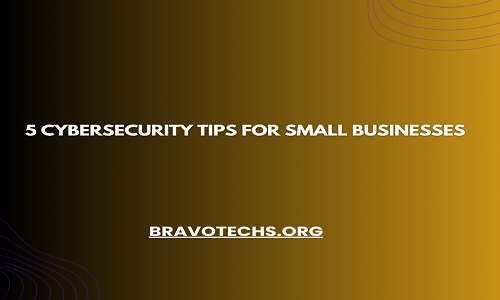Today modern world is interconnected; everyone is searching for their products and services over the internet. This rising trend is increasing the demand for cybersecurity practices in business operations. Now cybersecurity implementation should always be a top priority in businesses. Cybercrime also continues to evolve and hackers are not only targeting the biggest companies of the world but also small-level companies’ websites operating at the micro level.
The hackers can easily victim those sites where low levels of security on office networks, data centers, and devices. However, to protect sensitive information from hackers is not more challenging now. It doesn’t take much effort to implement the best cyber security around business.
Check out 5 cybersecurity tips for small businesses that can help you keep your small business safe from potential hacker attacks, attempts, and threats.
1. Use a firewall protection
The use of a Firewall is the first line of cybersecurity defense for your business. It provides complete protection against outside threats and cyber attackers. The firewall is powerful and one of the most important security shields that secure your computer or network from any potential threats and malicious software. With the use of an advanced firewall, you can protect your devices from any hacker attempts that can access your networks and computers via the internet.
2. Install updated and trusted anti-malware software
Anti-malware software is used to protect computers and networks from any malicious software or malware. This software scans the computer systems and prevents, identifies, and eliminates malware for information technology systems.
The installation of anti-malware software is the basic method to protect office computers and networks from any outside hacker attempts. To protect and ensure the tightened cyber security install the trusted and updated version of anti-malware software in your office’s computer and also on remote employees’ computers.
The best practice is always to have updated anti-malware software. To do this you can set the software to update automatically. This list of best and recommended software both free and paid options are available on TECHRADAR.
3. Protect your mobile devices
As a small business owner, you have to contact your suppliers, buyers, staff, and other business stakeholders via laptop or smart phone devices. You need to secure your mobile devices against potential hacker attempts. This is particularly more necessary when you connect to networks outside of your office network. You can also get help about how to protect your phone from hackers over the Google and ensure that your business mobile devices protected from cyber threats.
You can use a virtual private network (VPN) to access IT resources if you log into open WiFi networks mostly in public places such as café or libraries where internet connections do not ask for a password. One more tip is as a small business owner if your budget allows you then invest in mobile devices that are for office use only. This step will greatly help you and your employees aren’t mixing business data with personal accounts and you can secure office mobile devices from hackers easily.
Another important tip is to install the anti-malware software on smart phone devices this software always alerts you while opening any emails, links, messages or attachments that come from suspicious sources.
Finally set up strong and easy-to-remember passwords for various accounts. Many hacker’s attempts succeeded due to the weak or reused passwords on devices. You can also add multi-factor verification whenever possible. In this process your staff may feel stress while remembering passwords, to avoid this situation you can get help from the password manager.
4. Take backup regularly
The update and backup regularly is part of the best cybersecurity practices that keep your business secure. This is simple and done on a regular basis but often neglected and overlooked. It should not be too late and update your computer operating systems, windows, network drivers, and anti-virus software on a regular basis. For the best practice, you can make a schedule to update and take backups at regular intervals.
Cyber security experts always recommend small business owners back up their office records at least once a week. If you have a large amount of data then take your backup every 24 hours. You can also get help from cloud computing services and back up data to the cloud automatically on a regular time period. This is also an important tip to save your backup on an external hard drive that is not connected to a network.
5. Document your cybersecurity policies
Once you have made the best business cybersecurity protection plan that must include office computers, network security practices, and emergency course of action in case of a breach. It’s time to get it all in written form and email this document to all employees. Also, post this document on prominent working places so that everyone can read this easily.
Conduct a regular meeting over every aspect of this plan and answer any questions or concerns. Regular check on this policy from time to time update it accordingly and make sure everything is up to date.
If you want to promote your business and stay updated and competitive in the market then you have to implement cybersecurity in your businesses, otherwise, you can compete in the market, and outside malware attacks, hackers, and antivirus can attack your business resources and damage your business.
However, by implementing cybersecurity in business you can keep your save your business transactions safe from any cyber, malware, and potential outside threats. For cybersecurity plan enforcement our 5 Essential Cybersecurity Tips are quite helpful. Today is the right time to safe your business form hackers and any possible cybercrimes.

























